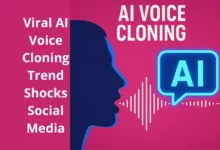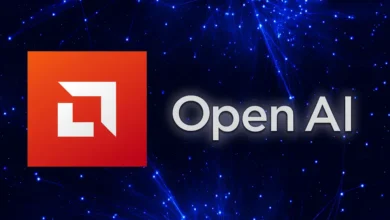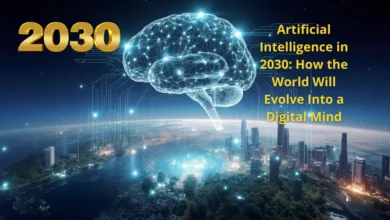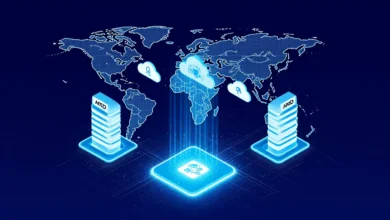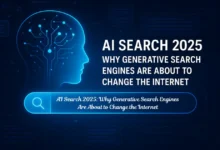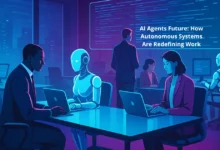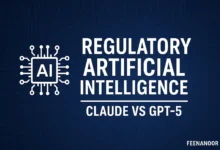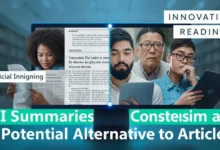The Rise of Agentic AI Systems — Why 2025 Marks the Beginning of Self-Operating Intelligence
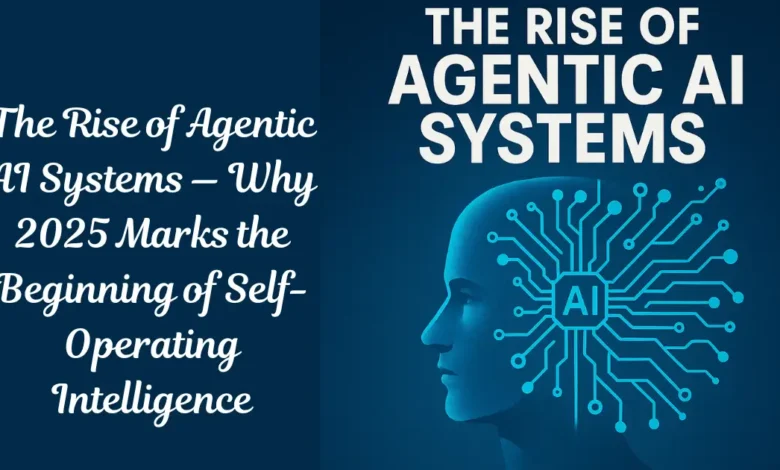
The Rise of Agentic AI Systems is more than a technological trend — it is the moment the world crosses from “AI as a tool” to “AI as an autonomous operator.” In 2025, artificial intelligence is evolving from reactive models that wait for prompts into proactive systems that plan, reason, correct themselves, and complete entire tasks without continuous human supervision.
This is not simply a milestone in AI development; it is a fundamental shift in how humans interact with machines. For decades, AI has helped us type faster, search better, and analyze more accurately — but always within the boundaries of direct human commands. Today, those boundaries are disappearing.
Agentic AI represents a new paradigm where the user provides a goal, not instructions, and the AI handles the rest.
table of contents
The Rise of Agentic AI Systems: From Prompt-Based Tools to Self-Directed Intelligence
Agentic AI is not a more powerful chatbot — it is an entirely new model of reasoning and autonomy. Instead of waiting for input and generating a single response, these systems can:
- break down complex tasks
- plan multi-step solutions
- interact with tools and external systems
- monitor progress
- fix errors
- make decisions
- and deliver the final result
All without requiring a human to guide every step.
1. Autonomous Task Completion
Modern agentic systems — such as OpenAI’s agent framework, Google Astra, Perplexity’s Comet AI Browser, and Anthropic’s tool-using capabilities — can understand user objectives at a high level.
A simple example:
Instead of a prompt like:
- “Write me an email.”
Users can now say:
- “Organize my inbox and draft responses to all high-priority messages.”
An agentic AI system will:
- scan the inbox
- detect priority messages
- draft replies
- categorize emails
- set reminders
- and refine its decisions
It behaves more like a digital project manager than a text generator.
2. Tool Usage and Real-Time Decision Making
2025 marked a breakthrough in AI’s ability to use external tools. Agentic systems now operate browsers, APIs, spreadsheets, apps, and system features as if they were human operators.
They can:
- search the web
- verify information
- extract data
- compare sources
- automate workflows
- execute scripts
- and continuously evaluate their own output
This makes the AI adaptable and action-oriented — a major departure from traditional LLM behavior.
3. Memory, Personalization, and Contextual Awareness
Agentic AI thrives on long-term understanding. Instead of responding blindly to each new prompt, these systems build a personal memory layer, enabling them to:
- learn user preferences
- remember task histories
- adapt writing tone
- recall past decisions
- personalize solutions
Your AI becomes a cognitive extension — one that thinks, filters, and optimizes on your behalf.
4. Multi-Agent Collaboration
For the first time, AI agents can collaborate like a digital workforce.
One agent handles research, another executes financial calculations, another monitors updates, and another communicates results.
This distributed intelligence accelerates tasks that would normally require a team of humans.
Why 2025 Is the Turning Point for Agentic AI
1. Hardware Finally Caught Up
Advances in AI accelerators — NVIDIA Blackwell, AMD MI300, and Apple’s M-series — unlocked real-time inference, multi-agent coordination, and low-latency decision-making.
Agents can now think while acting, instead of pausing between requests.
2. Mature Software Frameworks
The missing layer of AI — autonomy — finally arrived with:
- OpenAI’s Agent Framework
- Google Astra’s interactive intelligence
- Perplexity’s agentic browsing
- Meta’s tool-enabled models
These frameworks act like operating systems for autonomous AI.
3. Users Are Ready to Delegate
Human behavior shifted. People now trust AI with:
- scheduling
- finances
- research
- travel planning
- task automation
This cultural readiness accelerates the global adoption of agentic systems.
4. Businesses Need Automation
Companies realized that agentic AI can replace repetitive workflows with:
- 24/7 productivity
- near-zero error rates
- cost efficiency
- real-time scalability
This makes autonomous AI not just beneficial — but necessary.
How Agentic AI Will Transform Daily Life
1. Self-Running Workflows
Tasks will operate like background processes on a computer — without human intervention.
2. Smartphones Become Personal AI Command Centers
Phones evolve into multi-agent hubs capable of:
- real-time analysis
- on-device reasoning
- predictive assistance
- intelligent camera interpretation
- offline cognitive tasks
3. A New Type of Internet
Search transforms from “lookup” to “action.”
Instead of:
- “Find the best hotel in Dubai.”
Users will say:
- “Plan my Dubai trip for three days with a $300 budget.”
The AI will research, compare, choose, book, and schedule — end-to-end.
Ethical and Social Challenges
1. Job Transformation
Repetitive and routine jobs will be automated, reshaping the global labor landscape.
2. Transparency
The question “Why did the AI choose this?” becomes central to trust and safety.
3. Identity Blending
As agents learn from individuals, the line between “human preference” and “AI inference” becomes increasingly blurred.
Feenanoor AI Insights (Hub Section)
Feenanoor provides deep coverage of the global AI landscape — from generative intelligence to agentic systems and the evolving chip competition shaping the industry. Explore related insights:
AMD & OpenAI — The Deal Reshaping the AI Race
https://feenanoor.com/amd-stock-how-the-openai-deal-redefined-amds-position-in-the-global-ai-race/
How the AMD–OpenAI Partnership Could Transform AI Infrastructure
https://feenanoor.com/how-the-amd-openai-partnership-could-reshape-the-global-ai-infrastructure-market/
AMD Share Price Surges After OpenAI Deal
https://feenanoor.com/amd-share-price-surges-after-openai-deal-how-technology-is-rewriting-the-chip-war/
Conclusion
Agentic AI marks the beginning of a world where software doesn’t just answer questions — it completes missions. The shift from passive models to autonomous digital operators is redefining work, creativity, communication, and decision-making.
2025 is not simply another year of incremental AI updates. It is the beginning of self-operating intelligence — a new chapter where machines act with purpose, collaborate like teams, and extend human capability beyond previous limits.
FAQ
What makes Agentic AI different from traditional AI?
It plans, reasons, and executes tasks autonomously instead of only responding to prompts.
Is Agentic AI safe to use?
It is safe when transparent, well-aligned, and deployed with strong human oversight.
Will it replace jobs?
It will automate repetitive tasks but also create new technical and strategic roles.
How will it affect daily life?
Routine digital tasks will run automatically, making personal productivity smoother and faster.
Why is 2025 the breakthrough year?
Because hardware, software, and global adoption matured simultaneously.
Discover more from Feenanoor
Subscribe to get the latest posts sent to your email.





